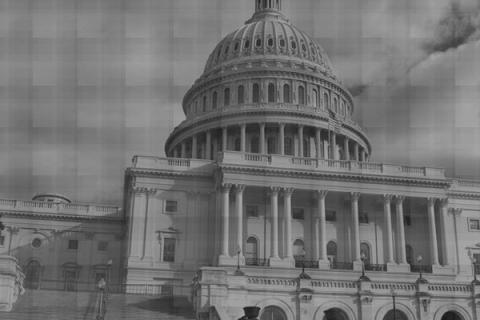One of the key tenets of the Tea Party movement is constitutional fidelity. For example, in response to the Wall St bailouts and health care reform bill, Tea Party adherents claimed that these measures violated the U.S. Constitution. Since then, Tea Party proponents and politicians have raised the prospect of citing the Constitution, chapter and verse, as a necessary requirement when passing federal legislation.
In my opinion, these efforts are admirable and long overdue. However, there has been one policy area which has escaped most Tea Party discussions: war. Blogger Jacob Hornberger, of The Future of Freedom Foundation, pointed this out in a recent post entitled Where Does the Tea Party Stand on Declaring War?
According to Article I, Section 8 of the Constitution, only Congress has the power to declare war or grant letters of marque and reprisal. Yet, neither of these requirements have been fulfilled in our military missions in Iraq, Afghanistan, Pakistan, and Yemen. Republican and Democratic Congresses have failed to adhere to these strict constitutional provisions. Instead, Bush and Obama have been given vague, open-ended "authorization" to use force wherever and whenever they've deemed appropriate. Except for Ron Paul, and to a lesser extent Senator-elect Rand Paul, there has been nary a peep of opposition to this state of affairs.
In fact, the United States has not officially declared war since World War II, when six different declarations were issued by Congress. And the last time Congress granted letters of marque and reprisal occurred during the Second Barbary War, when the U.S. government, under President James Madison, authorized private vessels to target North African Islamic pirates.
In October 2001, Ron Paul attempted to introduce Letters of Marque and Reprisal against Al-Qaeda terrorists, but failed in his efforts (It must be noted, though, that even Ron Paul voted for the original "authorization for use of military force" on September 14, 2001). He made another failed attempt in 2007, and recently re-introduced the concept to address the rise of Somali piracy. His son and newly elected U.S. Senator, Rand Paul, stated during his campaign that he would have demanded that Congress vote to declare war on Afghanistan and Iraq (he would've voted yes on Afghanistan, and no on Iraq). However, when pressed further, Rand has stated that current troop levels in those nations are under the jurisdiction of the President, and he has said relatively little about U.S. military escalation in Pakistan and Yemen. No other major Tea Party politicians and grassroots groups have addressed this issue in a meaningful way.
But, if the Tea Party is to remain constitutionally consistent and intellectually credible, it must address the war issue with as much vigor as it has bailouts, stimulus packages, health care reform, and other domestic policies. After all, our men and women in harm's way have taken an oath to support and defend the Constitution. Launching wars in multiple countries without officially declaring war and/or granting official letters of marque and reprisal may be politically and legally convenient, but it contradicts both the letter and spirit of the law. And that is not the Tea Party way.

